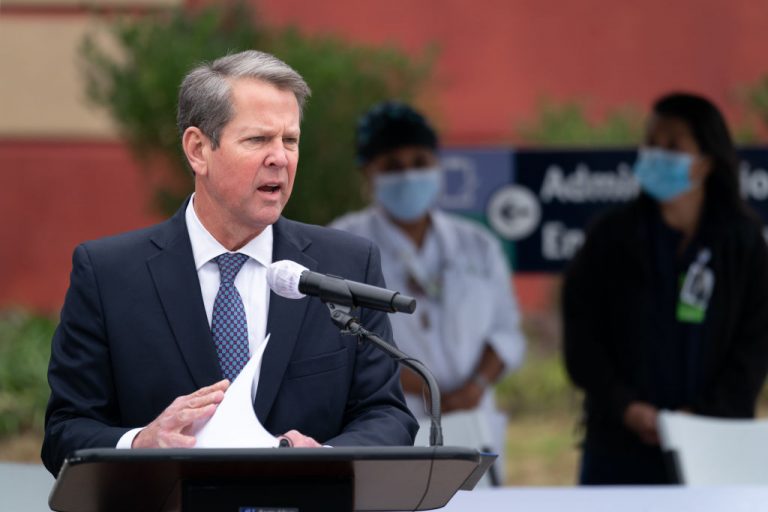U.S. District Judge J. P. Boulee has denied a motion aimed at preventing some portions of Georgia’s new voting law from being implemented ahead of the state legislature runoff elections on July 13. The legal challenge to Georgia’s voting laws, called the Election Integrity Act of 2021, was mounted by the Coalition for Good Governance, a leftist group.
The act was signed into law by Republican Governor Brian Kemp on March 25, 2021. It overhauled election rules in the state. It now mandates voter identification requirements for absentee ballots; it expands early in-person voting; it prohibits officials from sending unsolicited absentee ballot request forms; it restricts the use of ballot drop boxes; it increases staff and voting stations in places where there have been long queues; and it reduces the time people have to request an absentee ballot.
Democrats have attacked the bill; Joe Biden called it “Jim Crow in the 21st Century.” In a write-up at Fox News, Kemp accused Democrats and mainstream media of “spreading lies and misinformation” about the election law. He called such rhetoric “disingenuous and completely false.”
In its lawsuit, Coalition for Good Governance opposed the act’s provision regarding voters’ request for absentee ballot forms at least 11 days prior to Election Day. The suit also asked the court to revoke restrictions placed on election observers which blocked them from intentionally observing who the voters were casting their votes for and communicating such information among themselves. The group argued that such provisions violated either the Voting Rights Act or the Constitution.
Judge Boulee said that even though plaintiffs argued that the law might violate the First Amendment, they did not provide authority “that would support this interpretation of the law.” He stated that an injunction would lead to more harm of election authorities compared to the harm incurred by plaintiffs due to the law being left untouched. In his ruling, the judge noted that the timing of the lawsuit was a problem given that runoff elections are already underway.
Success
You are now signed up for our newsletter
Success
Check your email to complete sign up
“Election administrators have prepared to implement the challenged rules, have implemented them at least to some extent and now would have to grapple with a different set of rules in the middle of the election… The risk of disrupting the administration of an ongoing election … outweigh the alleged harm to plaintiffs at this time,” Boulee wrote in an 11-page order, according to The Epoch Times.
The court order relied on a ruling made by the U.S. Supreme Court in the 2006 case Purcell v. Gonzalez. It stated that courts should generally abstain from changing existing rules when elections are near. Called the “Purcell principle,” the Supreme Court found that such rule changes could cause confusion among voters and eventually would discourage them from participating in the electoral process.
In an interview with The Atlanta Journal-Constitution, Marilyn Marks, executive director of the Coalition for Good Governance, accused the voting law of endangering election integrity and transparency. Marks said that she will approach the courts to intervene in the matter before the municipal and special election in the fall.
“We’re concerned about the voter confusion that will no doubt occur with these little-known rapid changes to the rules, including the required information on ballot applications and the short deadline for applications to be received in this last week before the election,” Marks said.
DOJ lawsuit
The ruling on the Coalition for Good Governance lawsuit comes after the U.S. Department of Justice (DOJ) announced last month that it had filed a lawsuit against Georgia’s update to the election laws. In a June 25 statement, Attorney General Merrick B Garland called the lawsuit “the first step” to ensuring that “all eligible voters can cast a vote.”
At a news conference, Georgia Governor Brian Kemp criticized the DOJ lawsuit. He called it a “politically motivated assault” on the rule of law. He accused the Biden administration of attempting to force its “extreme agenda” on American states.
“Let me be clear: The Department of Justice lawsuit announced today is legally and constitutionally dead wrong. Their faults and baseless accusations are quite honestly disgusting… I can’t say I’m surprised, the president and his administration, Stacey Abrams, and their far-left allies have lied about the Election Integrity Act from the beginning,” Kemp said.
















